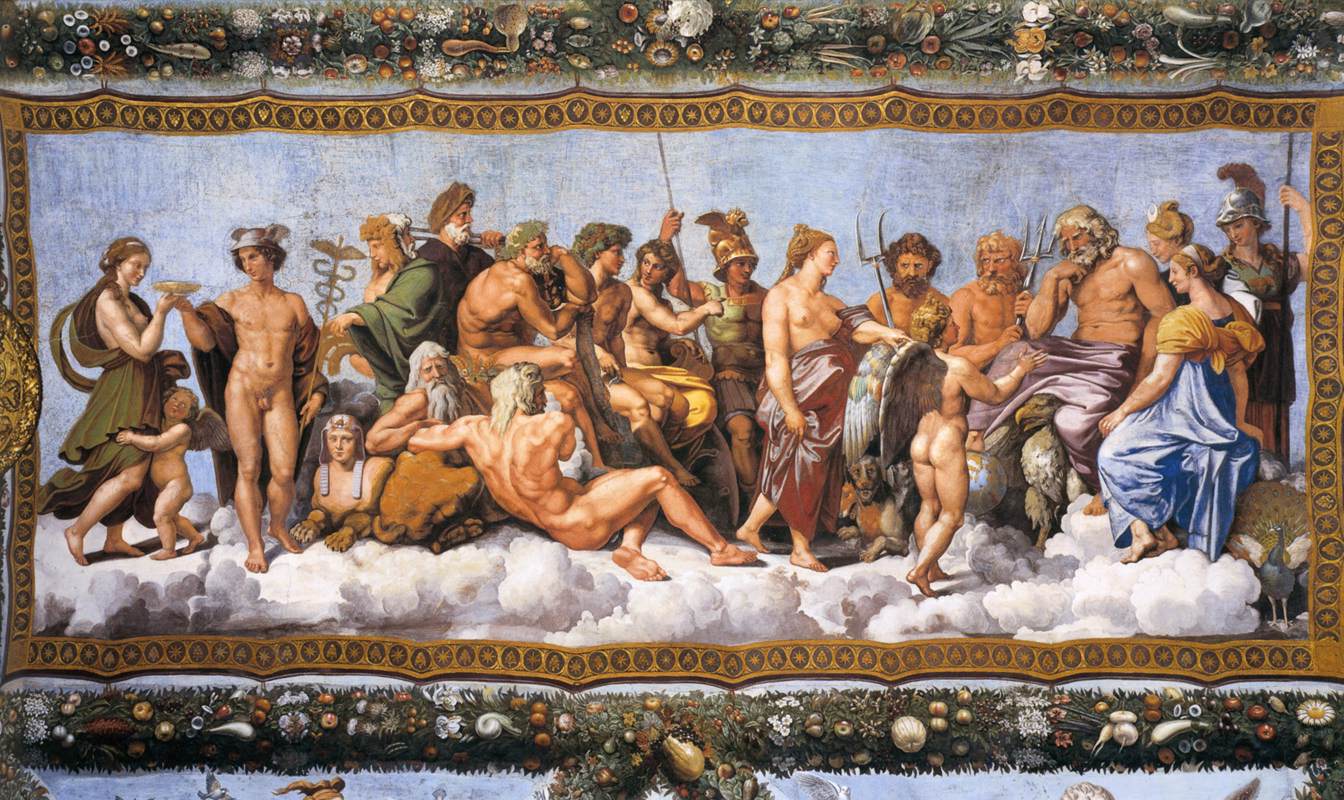[This post originally appeared at Polytheist.com back in September. I don’t have anything new for you right now; I’ve been sick and angsty and busy with the kids. Enjoy!]
Nothing has challenged my brain so much as an adult as walking away from monotheism and embracing polytheism. Not graduate school, not parenting (though that is challenging in some very profound ways).
I came to Christianity on my own. I wasn’t raised a Christian. There was no god talk in our house. The only time “his” name came up was when my dad got frustrated and started damning things. The only bible in the house was hidden in the back of my parents’ closet. Christianity was part of the overculture, but I was not culturally Christian – at least, not in the way the American Christians with church background were.
My experience of “God” and “The Divine” was through the land: The majesty of the fjords, the lush old growth forests, the myriad shades of greens and greys of South East Alaska. Bear, Deer, Salmon, Halibut, Eagle, Raven – these creatures were honored in my house through lessons on how to fish humanely, how to get out of their way, and so on. If there was a religion in my house it was Place: the land of Alaska and, for my mother, a longing for her homeland so very far away, Australia.
But modern American society has no vocabulary for place. We have “God.” I assumed that my connections were with the Holy Spirit or the Christian God. Over the years, I prayed and talked with God, but Jesus always gave me the cold shoulder. My greatest disenchantment came as I embraced my feminist awakening in my early 20s. Where was Woman in the Christian story? Where was my (female, non-heteronormative) experience reflected? I went deeper into the mystic aspect of the tradition, ending up with a devotion to the Theotokos.
(The Virgin Mary was a gateway: from Christianity to feminism to…. witchcraft and polytheism.)
Four years ago I walked away from my PhD studies in feminist and systematic theologies for a variety of reasons. Mostly I was weary. I was weary of attempting to raise a family while studying. I was weary of bureaucratic nonsense. Mostly I was weary of reading dead men who told me that my female body was illegitimate. I was tired of defending a tradition in which I no longer believed or felt I could find my place.
During my PhD program I was living in Wales and my reaction to the land reminded me of living in Alaska. I had profound experiences of the Land. I had also started to experience spirits and gods. These things were not the same. They were nothing like I’d experienced before. I began shifting from capital G god thinking to little g god thinking. Who were these beings that showed up?
My experiences were both solitary and communal. I experienced some connections in private daily prayer, some during trance-based ritual with others; some in my dining room and some in the woods. I shifted my practice to include individual gods and began to process my experiences. Finally I realized it was time to claim the term ‘polytheist.’
But old habits die hard. Turns out all the mental gymnastics I’d practiced for two decades, gymnastics to fold my experiences into a Christian paradigm, were quite effective! As I disentangle myself from monotheism I see monotheistic tentacles everywhere.
I see it in ‘us vs them’ thinking: there must be only one right way; if you’re not with us, you’re against us. There is a Good/White side and a Bad/Black side.
I see it in the linear way history is taught, always progressing from “worse” to “better”. A man saves us (always a man), either as a Saviour or as a prophet who knows the singular Truth. And there is but One Truth. This moral, spiritual truth is considered on par with philosophical, logical and scientific Truth.
I see it in the apocalyptic language and symbols of modern thinking: zombies, vampires, climate change dialog, conflict in the Middle East.
I’ve long believed that one of the beautiful things about Christ’s incarnation is that divinity is immanent. But now I see immanence in an even more beautiful, all encompassing way. There is much, much more that is divine. Little d and sometimes big D divine. My spiritual experiences make so much more sense now. I wasn’t crazy!
Walking away from monotheism has been liberating. I don’t have to work against Jesus, I just have to walk away. As my husband and I tell our kids: Jesus is a god, he’s just not our god; no need to put him down, but no need to honor him either.
In my teens and 20s I never expected to have a spiritual partner. I always felt like an outsider, a big ol’ weirdo. In polytheist thinking, my husband absolutely is spiritual partner. He and I don’t have to worship the same gods! (Although we overlap a little.) We don’t have to have the same experiences! We don’t have to have the same goals! This freedom allows us to share our work in a way that has created strong individual practices and a developing family practice.
There is also no pressure on our kids to honor any particular god. As I ask new friends and my kids, what have you experienced? If you’ve experienced a god, great! If not, great! I don’t think every one needs to have spiritual experiences to live a meaningful life or be a good person. This is vastly different from monotheist thinking, where everyone needs to have a similar experience or at least the same understanding of what divinity is.
Breaking free from these mental and spiritual constraints has changed my thinking in radical ways. It’s not always easy. There are some theological ideas I struggle to make sense of. Some of these questions arise because I’m a systematic theologian by temperament, not just training. Many of the questions arise because I’m still enmeshed in monotheist thinking. How can The Morrígan and Kali be different? Why does it seem like snake-ish gods all seem so similar and seem to have similar agendas? Why do so many signs and portents – crossing pantheons and cultures – have similar currents? Do they all get together and plan things, or just share drinks and laugh?
I don’t have the answers. I can parse these questions rather intelligently using my theological training, but I’m trying to let that lie for a while. It’s a valuable skill set, and I am grateful for the time and money I spent learning how to think theologically. I spent over a decade using that part of my brain. I’m hoping to spend the next decade or more experiencing the questions. This is what I am finding polytheism asks of me: engagement, relationship, experience. This is how polytheism challenges me.
















